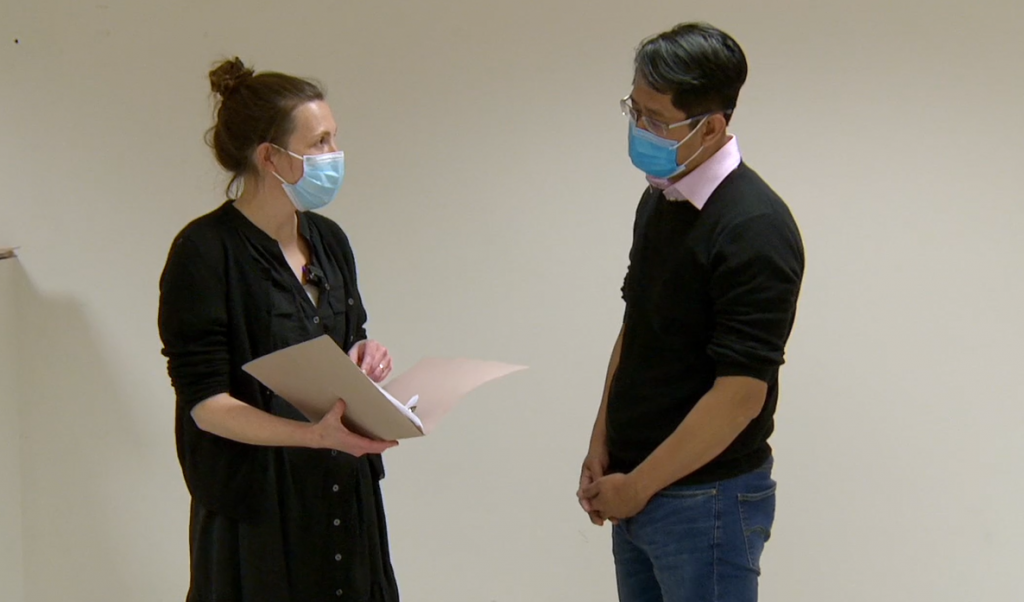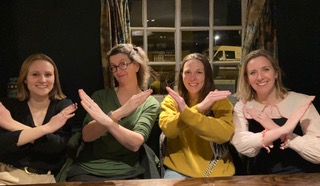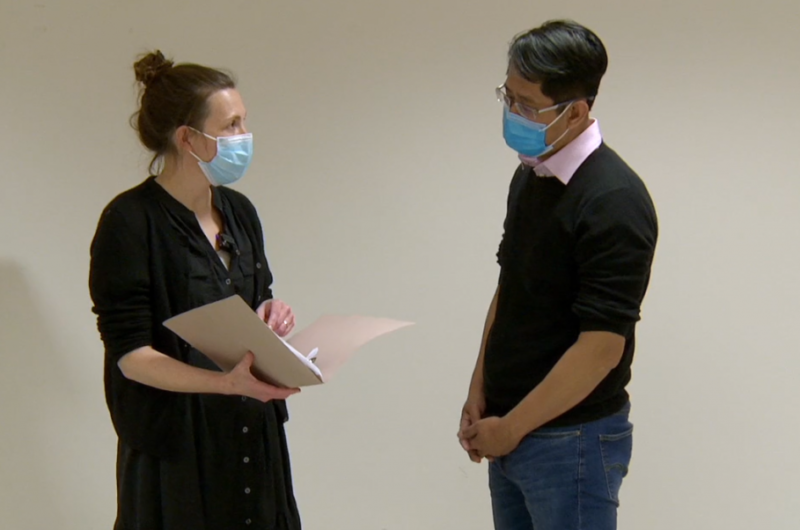By Dr Katherine Sharrocks , Anaesthetic Doctor (ST6) and Global Health Fellow
In this blog, Kat shares her experience of working in global health during a pandemic, her work on gender, equality and social inclusion and thoughts on International Women’s Day 2022.

Kat is an Anaesthetic Registrar (ST6) and Global Health Fellow. Kat entered medicine as a graduate having completed a masters degree in biochemistry, and subsequent DPhil in HIV research. She is currently working as a specialty registrar in Infectious Diseases and General Medicine in Cambridge, and took up an East of England Global Health Fellowship in November 2021.
lobal health in a pandemic with no travel
The last couple of years have truly driven home how short sighted it is to contemplate health on a purely national basis. There is no health other than global health, and working towards addressing differences in health outcomes is simply an extension of what we, as healthcare professionals, do every day. Global health is a core component of the study of my specialism – Infectious Diseases. Over the course of the pandemic members of our department been contributing to pre-existing global health partnerships, and forging new ones – a challenging process given the lack of international travel possible! Not being able to travel ensured we had to find other ways to engage: Zoom was used extensively and in a way has improved engagement – we’re not waiting to get on a plane to figure out what works. It’s honestly been a great experience to work with colleagues both in the UK and abroad to try and find creative solutions, and share learning.
The East of England Global Health Fellowship offered an opportunity for protected time, and support, to continue the above work whilst also getting to meet other people with a similar enthusiasm for global health. I am involved in partnerships with both Zimbabwe and Uganda, and am working as part of a much larger deanery wide group on equity for international medical graduates working in the UK.
Uganda – Kampala Cambridge Partnership
Antimicrobial resistance is a commonly encountered term in 2022: the WHO has listed it as a top global public health threat facing humanity; it’s almost 10 years since ‘The Drugs Don’t work’ was released by Professor Dame Sally Davies; the World Bank estimates costs as large as those of the 2008 global financial crisis without adequate action to prevent increased AMR, with those effects being of greatest impact on low-income countries.

The challenges faced by healthcare settings in the UK with reliable, secure lab facilities driving the appropriate use of antibiotics are different from those in less well-resourced countries. The partnership between Makerere University Department of Obstetrics and Gynaecology, Uganda, and Cambridge University Hospitals (CUH) is supported by a CwPAMS (Commonwealth Partnerships for Antimicrobial Stewardship) grant and through this we aim to improve antimicrobial stewardship and infection prevention control practices both of which are intrinsically linked to antimicrobial resistance. This year we have been starting to review antibiotic usage in the neonatal and postnatal ward, starting to develop antimicrobial guidelines, and have developed teaching videos on hand hygiene, PPE, antimicrobial stewardship and team working amongst other topics. These were great fun to film, especially seeing some of the team face to face in ‘REAL LIFE’ for the first time!
Gender Equality and Social Inclusion
The benefit of starting and growing a partnership is in developing relationships with others who have different experiences and views to one’s own. In our daily lives we work too often with similar minded people who have grown up in the same system, and it is difficult to open our eyes to novel ways of seeing situations. Difference can be of great value, providing new ways of solving problems and needs to be sought actively. Those who are outside of traditional ‘power holding’ decision making groups tend to have poorer social, economic and health outcomes. The targets and aims of those who are ‘included’ within decision making processes may differ from those who are ‘excluded’, and as consequence of this projects may fail even when trying to address the concerns of the latter as they themselves are not involved in the process.
The CwPAMS grant afforded me an opportunity to become a Gender Equality and Social Inclusion Champion for the project. Signing up to GESI goals compels the project to identify groups at risk of marginilisation, vulnerability and exclusion, and incorporate the participation of key groups in the programme. This is true for both sides of the partnership: addressing these issues in the delivery from CUH, as well as in Uganda is quite challenging. Structural discrimination remains problematic and continuing to address my own biases (as a white, educationally blessed, blunt ‘northern’ woman in Cambridge) has been part of taking on this role.
International Women’s Day
This blog post fortuitously coincides with International Women’s Day on the 8th March 2022 – a day not solely to highlight inequality, but also to celebrate the achievements of women. The CGHP extended team is stacked with incredible women working in a huge variety of important projects and partnerships, not least amongst the other CGHP Global Health Fellows. Their work and that of others within the CGHP partnerships will continue to demonstrate the value of working together to address inequalities both here in Cambridge, and further afield.

If you are interested in supporting CGHP, please follow the donate button or contact the team.
Return to blogs

